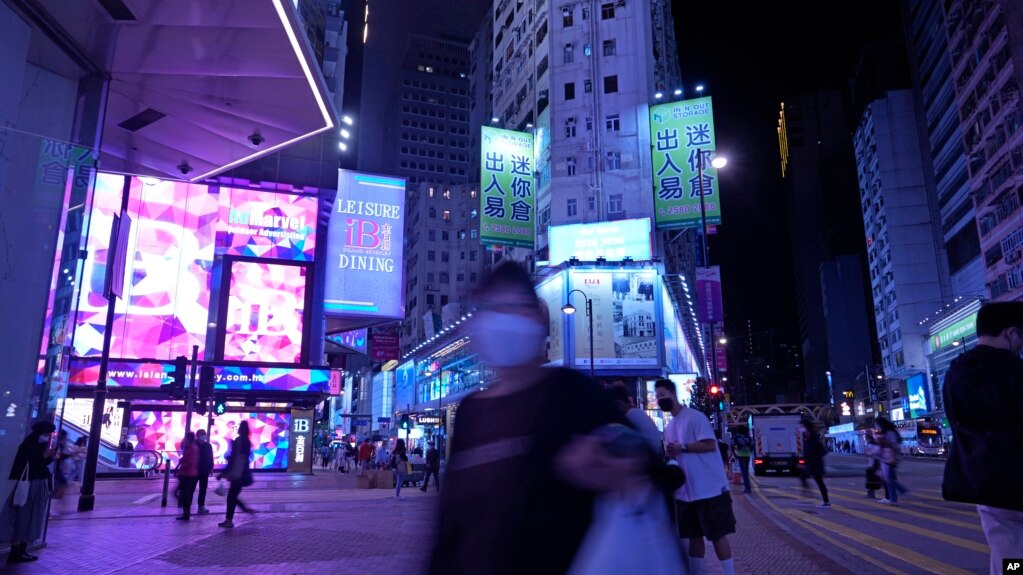
A nearly deserted street during the coronavirus pandemic in Hong Kong’s Causeway Bay area on March 10, 2022. (AP Photo/Vincent Yu)
Hong Kong’s strict quarantine policies are intended to stop COVID-19 at the border and prevent its spread in the community. But the policies have been criticized for damaging the economy and negatively affecting the mental health of citizens. Environmentalists say the policies are also hurting the environment by creating too much waste.
People arriving in Hong Kong will find plastic everywhere in quarantine hotels. Remote controls are wrapped in plastic, pillows are covered in plastic bags and food comes with plastic utensils.
Skincare company owner Clementine Vaughan flew into the city on April 4. Most visitors to Hong Kong are required to stay 14 days in quarantine hotels before they can freely travel in the city.
She told Reuters that all the staff members at the quarantine hotel wear protective covering, like gloves, face coverings and gowns to prevent the spread of the virus.
“The phones, you know, the remote controllers, everything’s been cellophane-wrapped,” she said.
Hong Kong throws out more than 2,300 tons of plastic waste a day. The government estimates the recycling rate is just 11 percent, which means most of the plastic goes to landfills.
A government spokesperson said officials were aware of a large increase of waste since COVID began. The government says it is urging people to be more environmentally friendly.
Edwin Lau is with local environmental group The Green Earth. He said Hong Kong’s decisions about COVID shows its lack of environmental awareness.
“People living in quarantine hotels, they are not confirmed cases,” Lau said. He said the government should permit the recycling, or reuse, of plastics from quarantine facilities.
Hong Kong is one of the few places that has a zero-COVID policy. It has quarantined tens of thousands of people this year in buildings for COVID-positive people and close contacts.
The quarantine hotels add to the waste problem. Guests of the hotels told Reuters all meals come in plastic bags.
Paul Zimmerman is an elected district councilor. He said the facilities themselves are also wasteful because they cannot be used long-term, like public housing.
“They’ve been built very quickly … (and don’t) comply with any particular building standards we have in Hong Kong.”
I’m Dan Novak.
Dan Novak adapted this story for VOA Learning English based on reporting by Reuters.
____________________________________________________________________
Words in This Story
quarantine — n. the period of time during which a person or animal that has a disease or that might have a disease is kept away from others to prevent the disease from spreading
glove — n. a covering for the hand that has separate parts for each finger
gown — n. a loose piece of clothing that covers most of the body
cellophane — n. a thin transparent material that is used for wrapping things
recycle — v. to make something new from something that has been used before
comply — v. to do what you have been asked or ordered to do